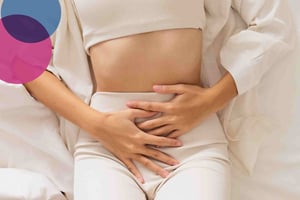April 24, 2015
Top dieting tips during IVF
Dieting tips during IVF and infertility treatment
Our own nutritional therapist, Neema Savvides, runs through her top tips for keeping a healthy diet during IVF
When we talk about nutrition for fertility, it’s very much preparation for the body – at HSFC we want to ensure you are in the best possible health in order to be able to conceive.
To do this we address your diet and lifestyle in order to maximise your response to the medication, ensuring your body is able to cope with the demands of the medication, and increasing your chances of implantation.
Pre-conception - preparation
The firsts steps are the preparation – we like to ensure there are no other underlying factors that could be affecting your ability to conceive. In doing so we look at:
- Balancing hormone levels (this is especially important if you have PCOS, diabetes or thyroid issues)
- Addressing any nutritional deficiencies
- Addressing and eliminating any signs of toxic overload
- Improving the health and quality of the eggs and sperm
- Addressing any other factors that may be affecting your chances of conceiving such as environmental factors and stress levels.
- Boosting blood flow to the uterus
The most crucial factors when it comes to assisted conception are ensuring the egg and sperm are of the best quality and we address this through your diet and lifestyle. The life of an egg and sperm are three months, so 3 months prior to treatment is an ideal amount of time to get your body in peak physical shape.
The other important factor is ensuring a good thick uterine lining in order for the fertilised egg to embed and implant.
I like to think of this stage as studying for an exam – you wouldn’t take an exam without studying, so treat your body and fertility treatment the same way – prepare, prepare, prepare!
During – response to stimulation
When undergoing assisted conception you will be taking a several medications to (usually) manipulate your body’s natural cycle and stimulate your ovaries to produce more follicles (commonly known as the stimulation phase). During this time the aim to increase your body’s response to medications (top tip – lots of high quality protein!).
Toward the end of your stimulation phase you will hopefully have several follicles ready to be collected (known as the egg retrieval during IVF or inseminated during IUI). This is positive in terms of the assisted conception process, however can you leave you feeling inflamed, bloated and uncomfortable. The goal here is to have you consuming a variety of anti-inflammatory foods in order to help your body heal and cope with the demands of the medication. This is especially important post egg retrieval to ensure the body has calmed down and settled from the medications ready for the transfer.
For the men we continue as before with specific nutrients to boost the quality, quantity and motility of the sperm.
Post – transfer
Here comes the difficult part – known as the 2 week wait. Here the focus is upon implantation – ensuring you are consuming certain nutrients to aid the implantation process, and remove anything that could possibly negatively affect this. Blood flow to the uterus is extremely important to ensure a healthy supply of oxygen and nutrients to the embryo/blastocyst.
The whole fertility process is a stressful and emotional one, and we like to help you to manage this with the correct nutrients and mindsets.


